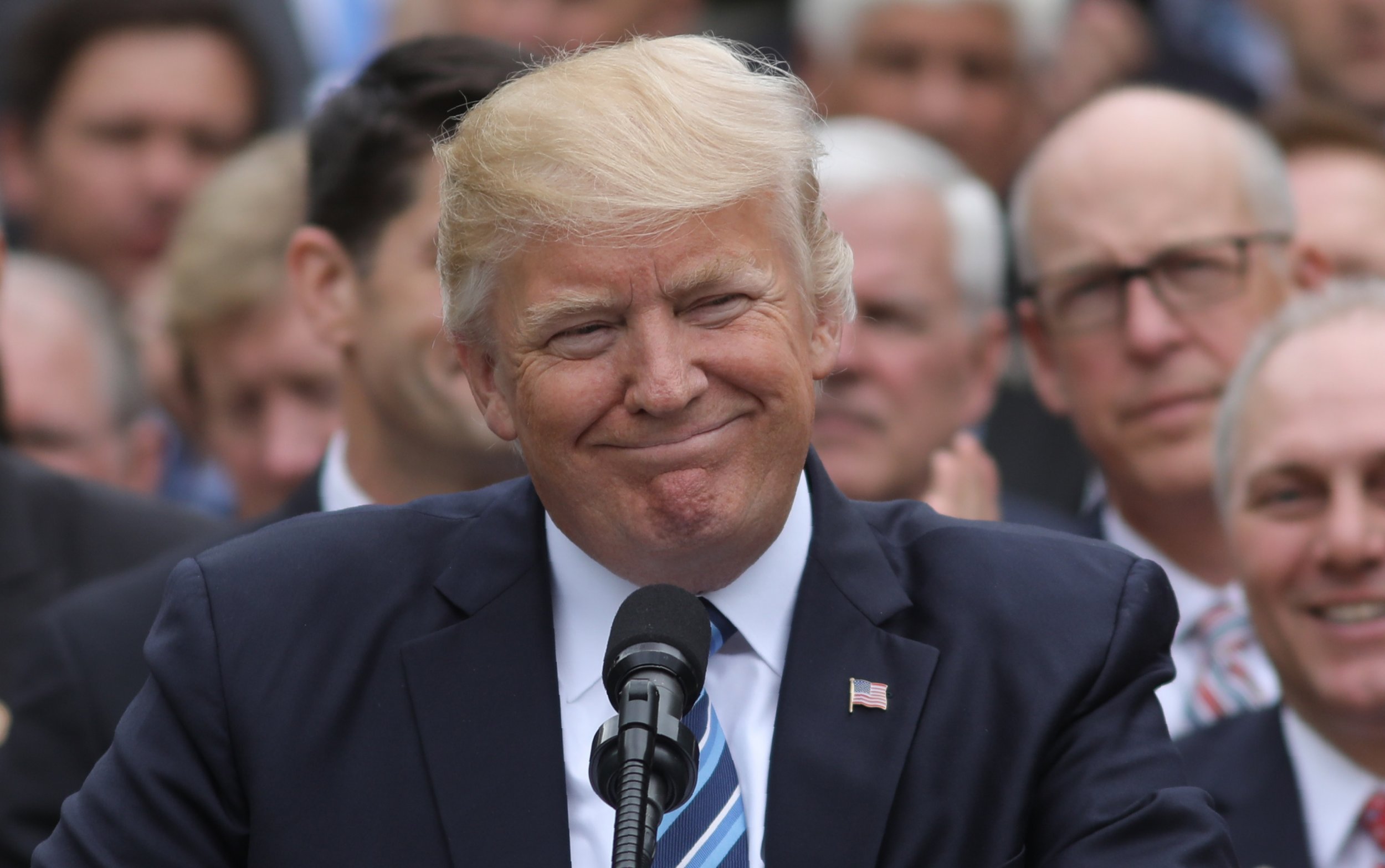
Once political rivals, President Donald Trump and Speaker of the House Paul Ryan on Thursday hailed the House's passage of a sweeping health care bill that if signed into law would repeal and replace Obamacare. In its place, the Republican-sponsored bill would provide fewer patient protections and offer less money for poorer Americans, even as it augurs a new era of uncertainty for both politicians.
With the bill's prospects in the Senate still uncertain, Republicans were nonetheless jubilant about passing the American Health Care Act, a bill that had been left for dead twice this year before Ryan and the White House successfully lured wavering conservatives—by promising to dismantle key elements of Obamacare—and a handful more moderates—by adding some funding to the measure.
The bill would end some of the most unpopular elements of Obamacare, including the requirement that Americans either purchase health insurance or pay a fine to the IRS, and would preserve a few others, such as allowing children to remain on their parents' health insurance until age 26. But it would dramatically reduce the subsidies available to help lower-middle-class and lower-income Americans purchase insurance, and it would effectively end the ban on discrimination against those with pre-existing conditions. While Obamacare flat-out prohibits such discrimination, a wildly popular feature of the law, the Trump-Ryan plan would allow states to apply to opt out of that requirement as long as they had some kind of risk pool mechanism set up. Health care experts overwhelmingly agree that such risk pools, composed of the sick, are not an adequate replacement. House Minority Leader Nancy Pelosi vowed to "tattoo" the vote on the GOP, adding, "You will glow in the dark on this one."
Despite the threats, Republicans took the leap of faith and rallied to support Ryan and Trump. Let's get this "fucking thing" done, declared Representative Martha McSally at a meeting of the House Republican Conference before the vote, according to various accounts. (The Air Force veteran's salty language apparently caused no offense.) To add to the fighting spirit, House leaders had "Gonna Fly Now," the theme from the film Rocky, played at their conference meeting. Cases of beer were rolled into the Capitol for an after-vote party that could go on for a while, as the House will be in recess for the next two weeks.
In some ways, though, the hard part has just begun. Because the bill has not been "scored"—evaluated by the Congressional Budget Office—no one can be sure how much it would cost or how many Americans would lose their health insurance because of it. According to a CBO estimate from an earlier version of the bill, 24 million fewer Americans would have health insurance under the AHCA than under Obamacare. That number could climb, making the bill more of an albatross than a boon to the GOP.
Indeed, both Republicans and Democrats are mindful of how Obamacare was used to crush Republicans at the polls in the 2010 midterm elections. There's no telling whether this bill will grow in popularity as it moves toward the Senate, where it faces a less than certain future. Passed in considerable haste, as opposed to the 17 months Obamacare was debated, the AHCA still needs to be sold to the public. The town hall meetings that Republican members hold back home over this "district work period" will provide some clue to its ultimate fate. Crowds reacted angrily to the Republican effort during the Easter recess, and that kind or agitation shows no signs of abating. The American Medical Association and the American Association of Retired Persons remain strongly opposed to the measure, as do patient advocacy groups such as the American Heart Association. The last iteration of the bill had only about 20 percent support among the public, according to various opinion polls.
Despite wariness among Senate Republicans, the bill may have enough momentum to clear the chamber. Repealing Obamacare has been a mantra among Republicans for seven years, and senators who oppose the AHCA could face primary challenges or the wrath of their GOP colleagues. Just as many Democrats reluctantly threw in with Obamacare in 2010, the same thing may happen with the GOP this time.
In a sense, it's only the latest battle in the health care wars that began in 1993, when President Bill Clinton and first lady Hillary Clinton, the future secretary of state and Democratic presidential nominee, went all in on health care, only to lose control of the Congress in 1994. Republican eagerness to trim the growth of Medicare led to Clinton's re-election comeback in 1996. A dramatic expansion of Medicare under George W. Bush to include a prescription drug benefit laid the groundwork for the Tea Party that sought to undo it as well as Obamacare. Ryan knows what a wild ride this can be, and Trump is about to find out.
Uncommon Knowledge
Newsweek is committed to challenging conventional wisdom and finding connections in the search for common ground.
Newsweek is committed to challenging conventional wisdom and finding connections in the search for common ground.
About the writer
Matthew Cooper has worked for some of America's most prestigious magazines including Time, The New Republic, National Journal, U.S. News ... Read more





